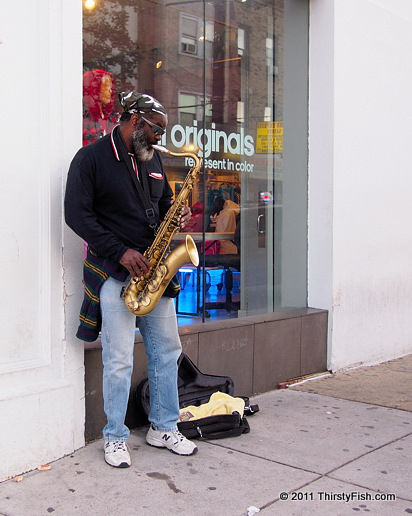The Saxaphone Man / The Myth of Meritocracy

During a speech class I took in college, we were told that the first rule of public speaking is to have proper credentials to speak. A credential is an attestation of qualification, competence, or authority issued to an individual by a third party with a relevant or de facto authority or assumed competence to do so. There are so many fallacies in this idea.
De facto is a Latin expression that means "in practice or actuality, but not necessarily officially established". For example, we might say, the de facto leaders shaping United States policies are not elected officials but corporate interests and lobbies.
What makes an authority an authority? In the simplest terms, authority is "power" with a claim of legitimacy. Therefore, a de facto authority can grant credentials to pretty much anyone that it deems to be qualified. Or, remove credentials. Hmmm!
If all of this sounds somewhat fishy, that is because it is. The Confucian concept of meritocracy, the idea of "choosing the most qualified person for the job" is assumed to overcome the inherent problems of this dilemma. But it does not; Especially when merits and qualifications are defined by de facto authorities with specific interests. Do you think that many of the so called journalists that appear on television really have journalistic credentials? In a meritocracy, many individuals are motivated by documented credentials, Ph.D.'s, professional titles. With degrees and titles, "the most qualified" becomes a quantifiable choice. Unfortunately, degrees and titles are often poor indicators of future success, especially in fields where moral courage is essential.
There are no simple solutions to the problems of the abuse of meritocracy and meritocracy itself. When we recognize achievement, we are looking at the past. Yes, we need to have certain essential skills to be qualified for what we are allowed to do, but, so called credentials do not sufficiently guarantee performance...
And the saxophone man plays his saxophone. He does not care about his credentials, or that he has no audience. What matters in how the notes bend.
Posted
- Mon 2011-11-21
Captured
- 2011-11-05
- Philadelphia, PA


